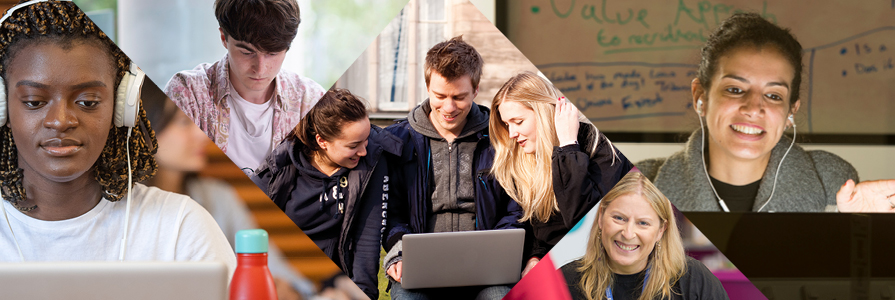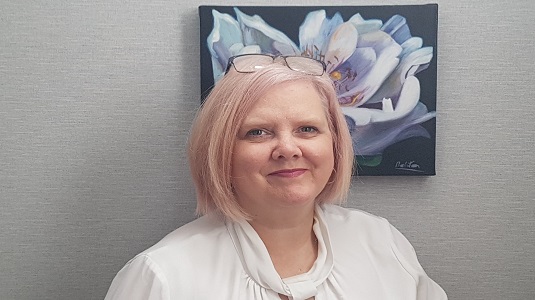SFC news published since 2018. See SFC archived content for earlier news articles.
As external Counselling and Wellbeing services around colleges often work to capacity, in order to support students fully, colleges offer their own Counselling and Wellbeing service – even during a national lockdown.


Over the last few years, we have seen an increasing rise in the number of students who require support for their mental health and physical wellbeing.
Like other areas in Scotland, external services around our college are working to capacity so in order to support students fully, it was vital we created our own Counselling and Wellbeing service.
The Scottish Government funding allocated by SFC to colleges and universities for counselling was a tremendous boost for us. It allowed us to really expand the service and offer more appointments, to build in a crisis intervention service and to be able to offer a fully flexible service that fitted around the different timetables for the students.
Then lockdown happened.
As they say, best laid plans of mice and men. Like all other areas, our service had to adapt very quickly from being one that was front facing and very personal, to a virtual service where students were now receiving counselling via telephone or video chat. Coupled with the fact that the counsellors were new to Forth Valley College, it led to being a very interesting time and gave the counsellors a very steep learning curve.
The counsellors had to adapt their counselling practice quickly to delivering sessions in this virtual mode, which is surprisingly different to face-to-face counselling. They found it much more time consuming and tiring. Being on video chat for most of the day, every day, could easily have taken its toll if it were not for the support they gave each other and also via their supervision. We quickly realised that the service could not run in a similar fashion to the face-to-face counselling. There was so much we had to take into consideration:
- How can we capture consent from the students regarding clinical note taking?
- How was the session going to be carried out – phone call or video chat?
- Do they have access to IT that could support a session?
- How many can realistically be seen in one day?
These were just some of the initial questions we asked ourselves but as the service started, there were other areas that came to light:
- Does the student have a safe space to talk?
- What do we do if a session turns into a safeguarding issue?
These two points became the most challenging for us as not only were we not with the students to ensure their safety and security, but also external services were changing so some external support routes that we had previously were not there anymore.
In terms of safe space, creativity and flexibility were key. The counsellors worked hard with the students to ensure their sessions occurred at a time that was safest for them. For some, it meant the students going on a walk so they could talk. Although not ideal, it was best for the student.
For safeguarding, we found that communication was very important. We were often in contact multiple times in a short period with students until we could get the proper help and support in place. It meant working as a team with the other ‘key’ services within the college to ensure that everyone was in the loop looking after the students’ welfare.
We also found that when dealing with counselling issues, we were picking up more concerns as we were entering into the personal spaces of the students, which then raised safety concerns such as parental control, domestic abuse etc.
To say that lockdown was challenging is really an understatement. It tested our resilience, our adaptability, our strength as a team and our strength as individuals. We have learned a lot during this time and it can only strengthen our Counselling and Wellbeing service. Moreover, it has given us things to think about in terms of how we can adapt our service going forward.
What will the new Counselling and Wellbeing service look like? Watch this space.

